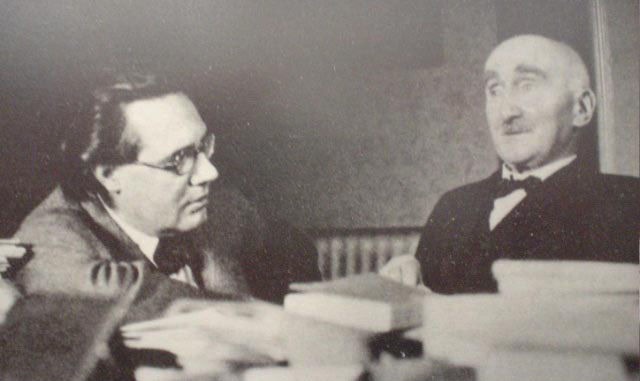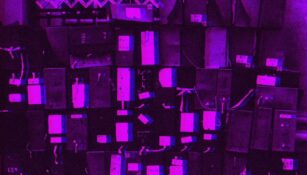
N. XXVI, February 2018
edited by Federica Buongiorno, Rocco Ronchi, Caterina Zanfi
Italian version | Version Française
The history of Henri Bergson’s (1859-1941) philosophy is one of the most complex and problematic of the 20th century. Bergson gained increasing popularity over the course of his life and career, to the point of becoming the French philosopher par excellence. His works – from the 1889 Essay on the Immediate Data of Consciousness to his last works from the 1930s – exercised a crucial influence on a wide range of fields in 20th-century French and European culture. Significant traces of his thought are to be found not just in subsequent philosophy, but also in the spheres of literature, psychology, science, epistemology, art, and theology. While the popularity of this French philosopher gradually declined after the 1930s, recent decades have witnessed a renewed interest – if not a genuine resurgence – in Bergsonian studies.
The recent revival in Bergsonian studies has been fuelled by an important critical edition project, led by Frédéric Worms. The most important stage was completed in 2011 with the republication of Bergson’s eight major works and the Écrits philosophiques. To these, two previously unpublished landmark texts have recently been added: the two courses Histoire de l’idée de temps and L’évolution du problème de la liberté, which were held at the Collège de France in 1902/1903 and 1904/1905 respectively. Péguy entrusted two stenographers with transcribing the lectures when he could not attend the courses himself. The transcriptions from the two courses were then donated to the Fonds Doucet in 1997, and finally edited respectively by Camille Riquier and Arnaud François for “Presses Universitaires de France”, which in coming years will carry on the publication of other previously unpublished texts from the same collection.
These publications lend a new voice to the philosopher through the famous lectures that so greatly contributed to his ‘glory’. Their content was hitherto completely unknown to 21st-century readers, with the exception of the brief summaries provided in the Mélanges and the few, partial transcriptions published in “Annales bergsoniennes” – some of which have already been translated into Italian (Storia della memoria e storia della metafisica, ETS 2007; Sul segno. Lezioni del 1902-1903 sulla storia dell’idea di tempo, Textus 2011).
The present issue of “Lo Sguardo” approaches Bergson’s philosophy by taking the publication of his two courses as an opportunity to reconsider the relation of Bergsonian thought to the history of philosophy on the one hand and, on the other, to the empirical sciences. The issue will therefore be divided into two sections, corresponding to the two CfPs, to which the editors are inviting the scholarly community to contribute.
ACCEPTED LANGUAGES:
ITALIAN, ENGLISH, FRENCH, GERMAN, AND SPANISH
DEADLINE FOR SUBMISSION OF PROPOSALS: September 1st 2017
Procedure: Send an abstract of up to 4,000 characters, including the title of the proposed contribution and an outline of its argument, to callforpapers@losguardo.net by the specified deadline. Proposals will be evaluated by the editors of the Journal and a panel of readers, and the results of the selection will be announced to the authors by September 30th, 2017. Accepted papers will then have to be submitted to the editors by a new deadline, which will be announced to the authors with the results of the selection, and will undergo a double-blind review.
Call for proposals
This issue of “Lo Sguardo” invites researchers and scholars working in the fields of philosophy and history of philosophy to contribute to issue 1/2008 of the journal according to the following guidelines. Only proposals pertaining to the specified topics will be taken into consideration.
CFP/1 – Bergson at the Collège: The first section of the issue is intended to investigate the innovative nature of Bergson’s courses on the idea of time and the problem of freedom, whose significance is yet to be evaluated. The issues addressed by Bergson provide an opportunity to further examine and clarify the topics discussed in his major works: from the epistemological and ontological field to the moral sphere, which he investigated from the 1910s onwards, especially in The Two Sources of Morality and Religion. The lectures, moreover, outline a particular view of the history of philosophy, alternative to the “official” one taught in present-day textbooks. It allows us to adopt a new perspective on “classic” philosophers: Plato, Aristotle, Descartes, Spinoza, Leibniz, Kant and especially Plotinus, whom Bergson would appear to present as the key figure in the history of metaphysics. Scholars are invited to submit contributions strictly pertaining to the above-mentioned topics.
CFP/2 – Duration and Reality: The second section of the issue will focus on the relation between Bergson’s thought and the natural sciences, from a theoretical rather than historical perspective. Particular attention will be devoted to the English philosopher A.N. Whitehead, one of the contemporary authors closest to Bergson’s conceptual framework. Not least in the light of Isabelle Stengers’ recent studies, Whitehead’s work may be regarded as a fruitful starting point to rethink the philosophy of absolute immanence on the level of epistemology and natural philosophy. Scholars are invited to submit contributions strictly pertaining to the above-mentioned topics.

